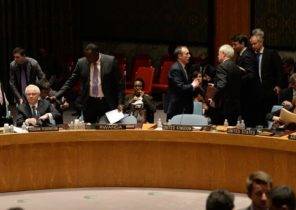Most people when they hear bad news, tend to belittle their value. Even professional economic forecasters can succumb to temptation appears in the form of hope. In February of this year 500 million people in China were in a mode of isolation, and covid-19 spread to Italy. However, the international monetary Fund (IMF) reported that its baseline global GDP growth this year will be only 0.1 percentage points lower than previously expected. In April, the IMF experts have lowered the forecast by 6.2 percentage points to 3 percent. In June, the forecast was cut by a further 1.9 percentage points. Just a week informal survey conducted among the approximately 40 employees of the IMF, showed that three quarters of respondents expect a further decrease in October.
In General, people engaged in economic forecasts — optimistic. They rarely predict a recession. Human nature, incentives and political pressure to interfere in this process. However, done in pink glasses the IMF and the world Bank can have serious consequences. This is especially true today for poor countries, where сovid-19 destroys the economy, while governments, international organizations and investors use forecasts to determine their actions.
Sometimes the predictions of the IMF and the world Bank are the only ones able to inspire confidence. They can influence government spending and plans for borrowing. Investors can provide the money at a lower interest rate to those countries whose economies are expected to grow faster. In addition, the projections define the position of the IMF and the world Bank as to the creditworthiness of a particular country, and this, in turn, is a determining factor in deciding if she deserves financial assistance.
The IMF is generally optimistic in their assessments. His annual forecasts of advanced economies in the period 1990 to 2016 was on average 0.42 percentage points higher subsequently published data. A large part of the optimism is a consequence of the inability to predict the downturn in the economy. Even if the decline has already begun, the authors of the forecasts are not in a hurry to take this into account.
Such errors can substantially change the debt dynamics. Take, for example, a country that, as expected, in 20 years will have a state debt in the amount of 50 percent of GDP. If annual growth is 0.5 percentage points below predicted, and the policy will not change, then the debt ratio may reach 90 percent of GDP. In a recently published study by Paul Beaudry (Paul Beaudry) from the University of British Columbia (University of British Columbia) and Tim Willems (Tim Willems) from the IMF even got overly optimistic with future fiscal crises. They found that overestimation of average annual growth by one percentage point for a period of three years (IMF makes 40 percent of all cases) reduces after three years of economic growth a full percentage point. The government and private companies, seems to welcome a good prognosis and increase the debt. After that the problems begin.
To predict economic growth is damn hard. Obtaining the correct result does not help forecasters who are not interested in, to notice the clouds on the horizon. Analysts fear that grim assessment may turn into self-fulfilling forecast. The wrong prediction of the onset of the recession ruining the reputation of the forecaster to a greater extent than the failure to predict it in together with everyone. In addition, there is still a “constraining the government’s response,” emphasizes Maurice Obstfeld (Maurice Obstfeld), who served in the period from 2015 to 2018, the chief economist of the IMF.
The internal pressure to a positive adjustment of forecasts to justify the loan package, “no doubt, too, is the question,” emphasizes Mr. Obstfeld. The study of the work of the IMF is conducted by Giang Ho (Giang Ho) and Paolo Mauro (Paolo Mauro), it was noted that its predictors are particularly optimistic when countries are preparing to become members of a specific program. The office of independent evaluation (Independent Evaluation Office), IMF recognizes the presence of pink predictions in well-publicized cases of financial assistance, but they also believe that such forecasts are usually adjusted in the result of the first evaluation of the programme, which takes place three months after the beginning of its implementation (But at this point the deal is, of course, already signed).
Some economists at the IMF are more optimistic than others, I think Mr. Beaudry and Mr. Willems. In poor countries the less-experienced economists, tend to offer less accurate estimates. Although the discovery of oil and other minerals do not increase immediately growth of the economy, the forecasters, the IMF is constantly saying that it will be so. This conclusion is held in 2017, the study, which was James Cust (Cust James) from the world Bank and David Mihaly (David Mihalyi) of the research Institute for natural resource management (Natural Resource Governance Institute).
The lack of consistency from the IMF too has drawn criticism. Since the beginning of the pandemic coronavirus he lowered growth rates in 2020 in rich countries by three percentage points more than in emerging economies. It’s weird, noted in June Justin Sandifer (Justin Sandefur) from the Center for global development (Centre for Global Development) and Arvind Subramanian (Arvind Subramanian) from the University of Asoka (Ashoka University). Mode of self-isolation and social distancing in poor countries, at least as stringent as the rich. However, their response to the fiscal region is much weaker, and, as recognized by themselves, the IMF, the outflow of capital and pressure on the national currency represent a big threat. Perhaps these experts simply believe that the IMF at this time gives a more rosy assessments of poorer countries to provide them with care (In the opinion of IMF experts, China’s success in curbing the spread of the virus are the reason that the estimates for countries with developing economies are more positive. In addition, they categorically deny the impact of their predictions for economic growth on the provision of credit).
Powerful and shrewd politicians might expect to turn to other forecasts. Often the only alternative for poor countries is the world Bank. Over the last ten years he has provided more accurate forecasts for Africa and the Middle East than the IMF, but it was worse in Latin America (although the differences were slight). Overall, the comparison of the forecasts that every January makes Prakash Loungani (Prakash Loungani) from the independent evaluation office and which is then published by these two organizations, suggests that the IMF is better detects signs of a slowdown in poor countries.
Perhaps, as noted by Mr. Obstfeld, people just have less to expect from economic forecasts. Forecasts reflect expectations regarding the most probable result, but the probability of their accuracy is negligible. “You get something useful, but usually you don’t get high fidelity”.







